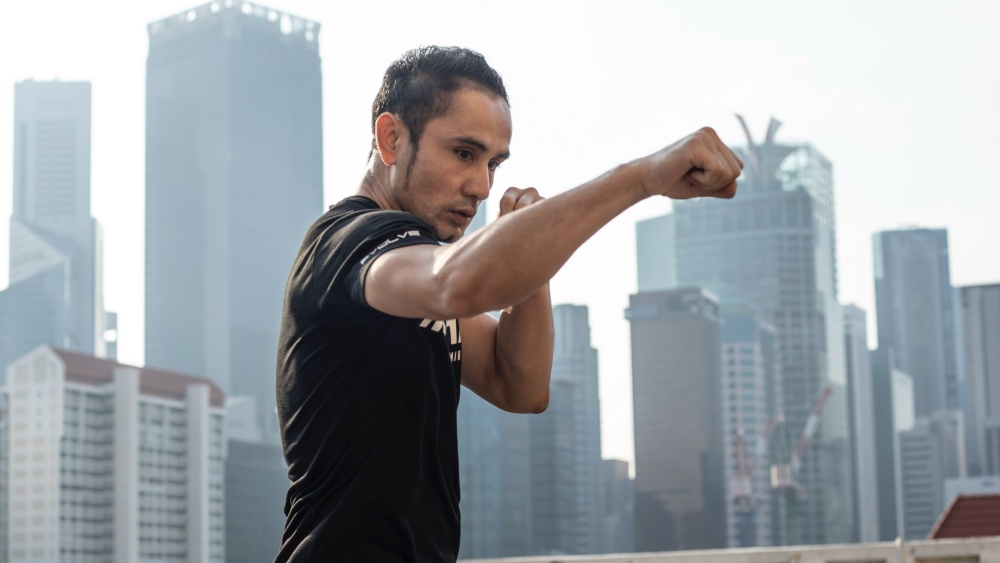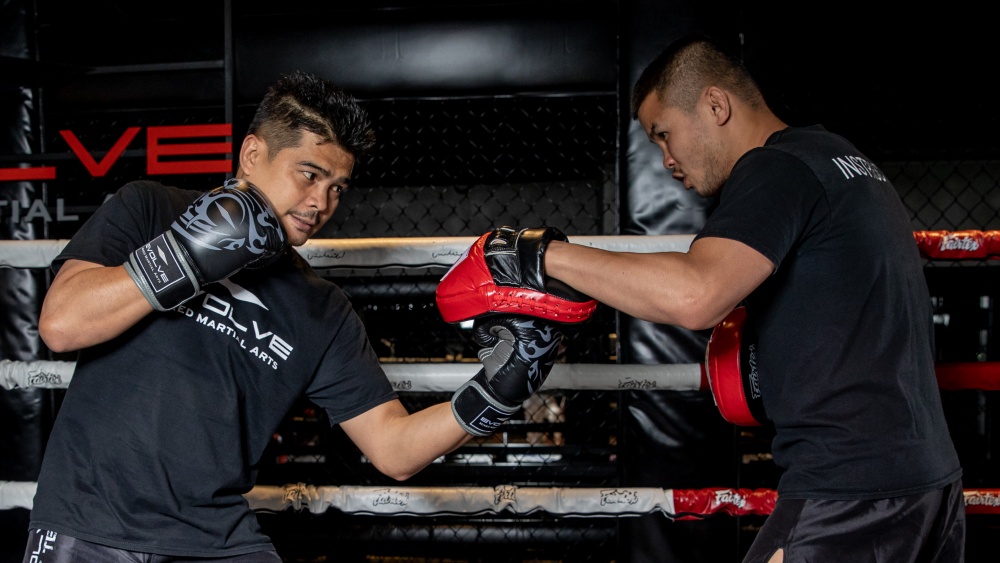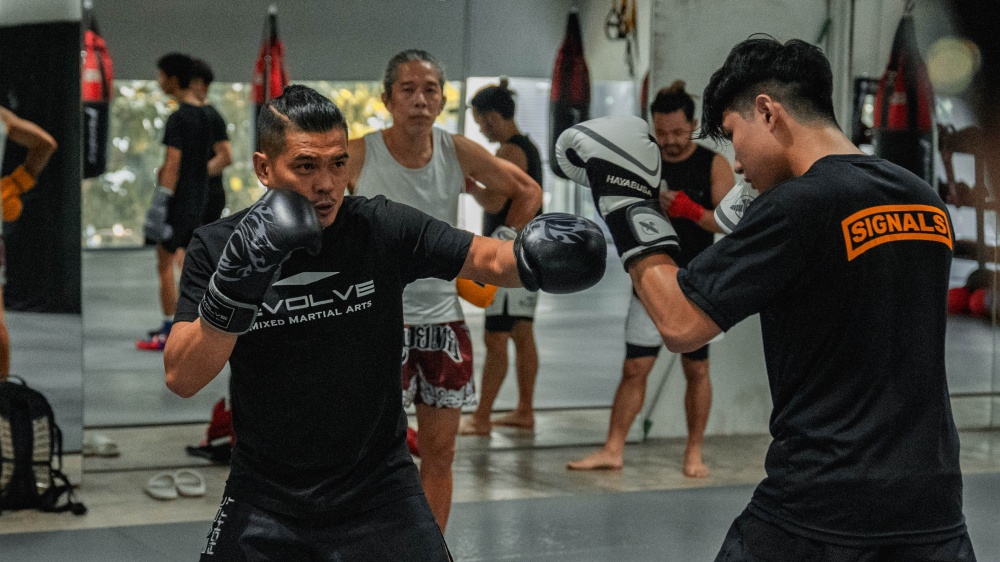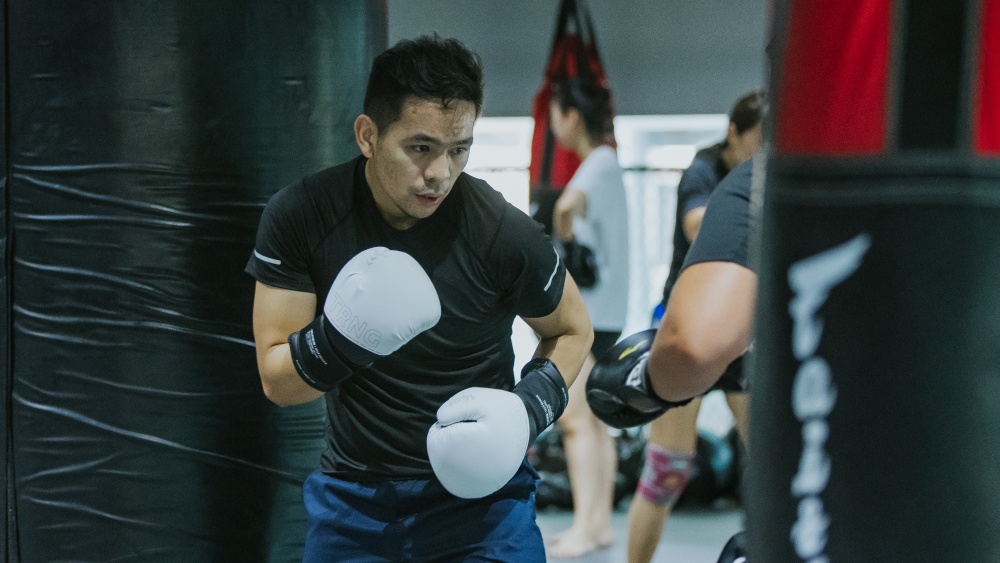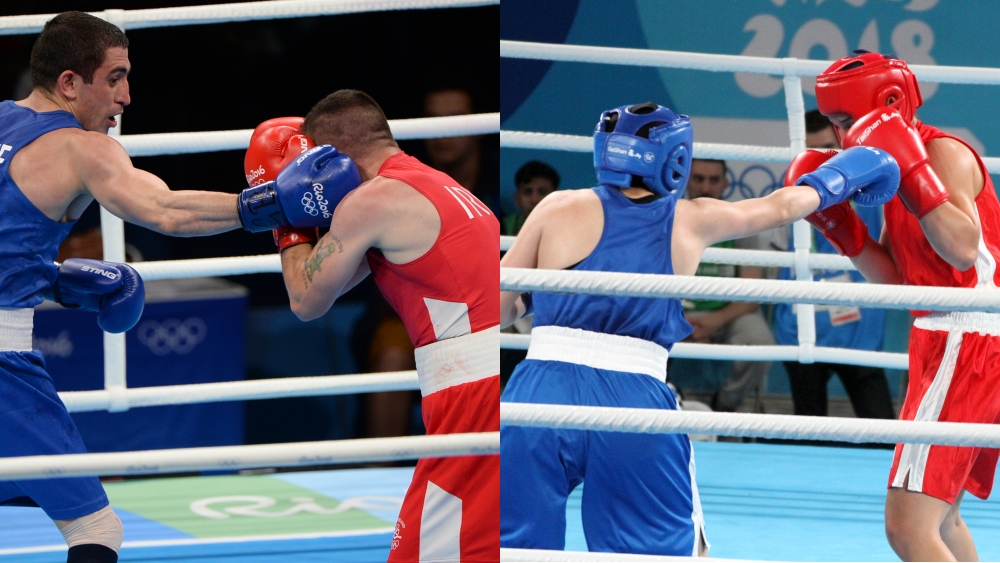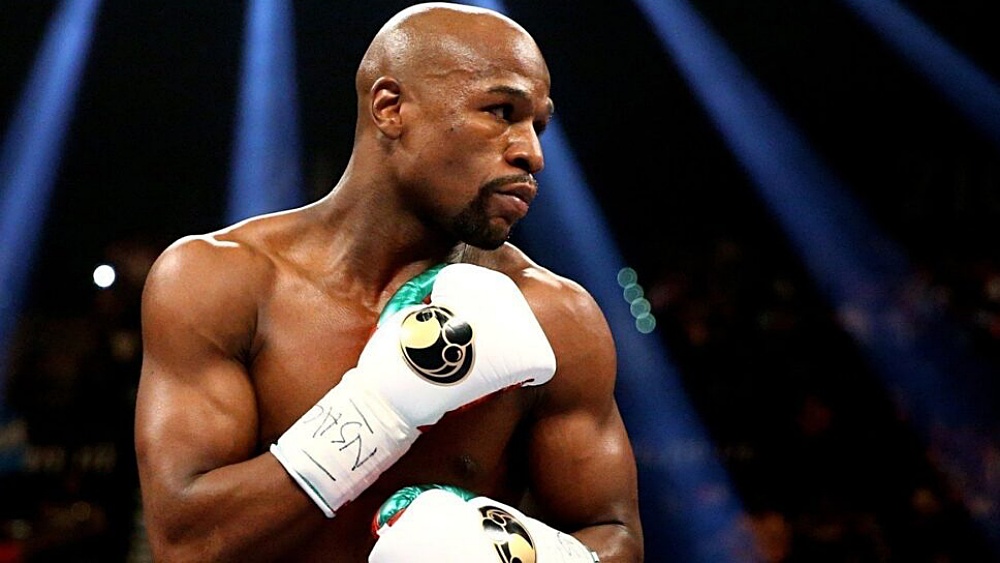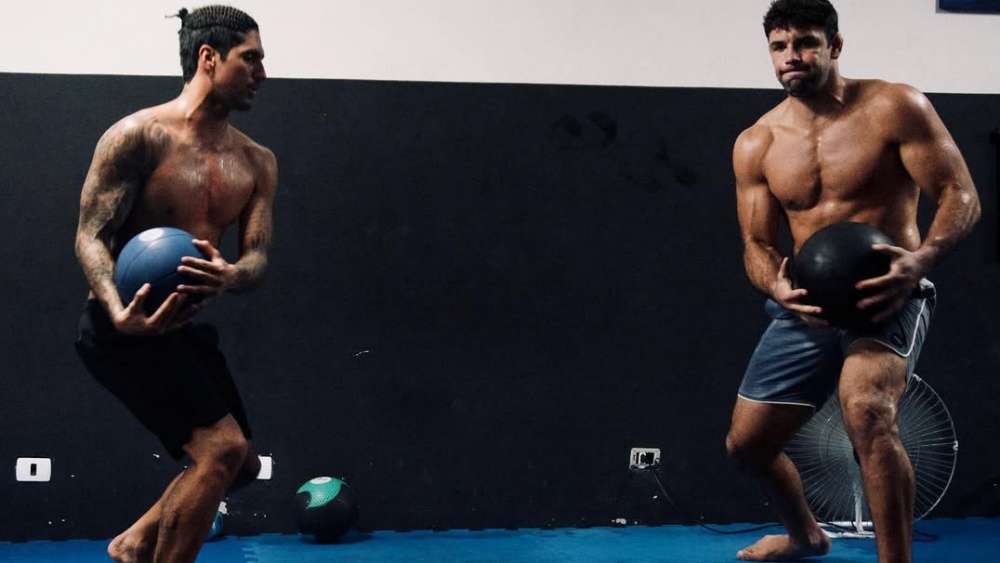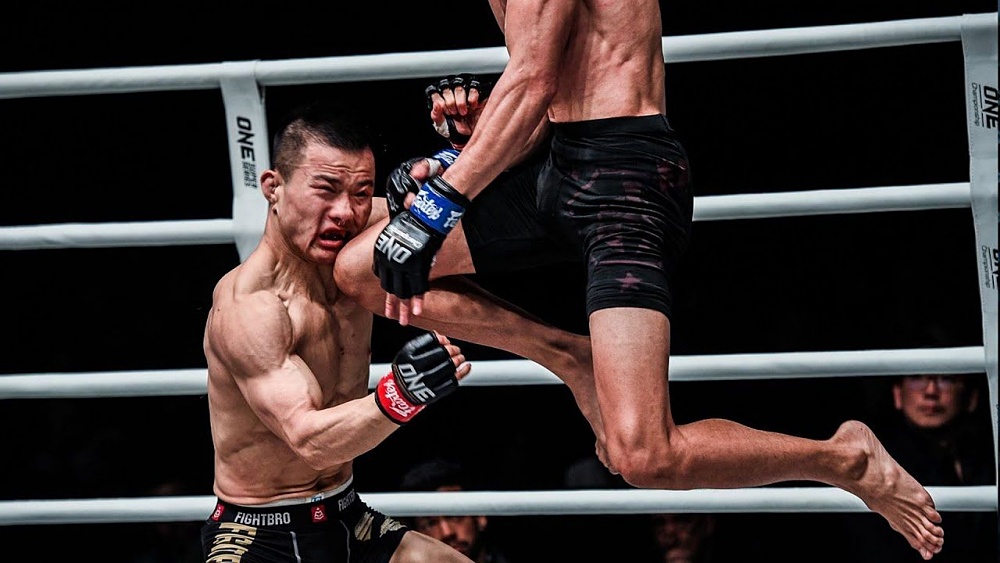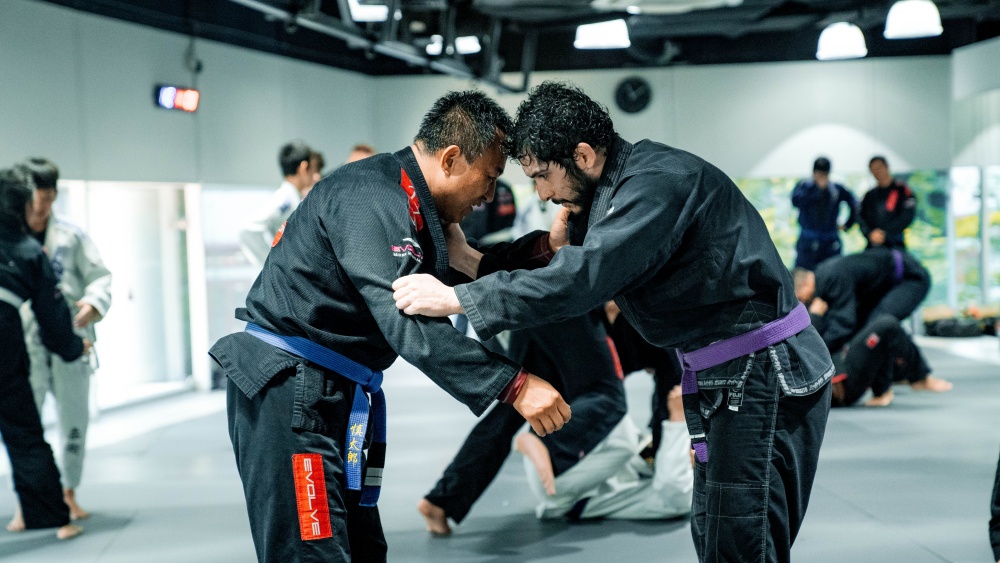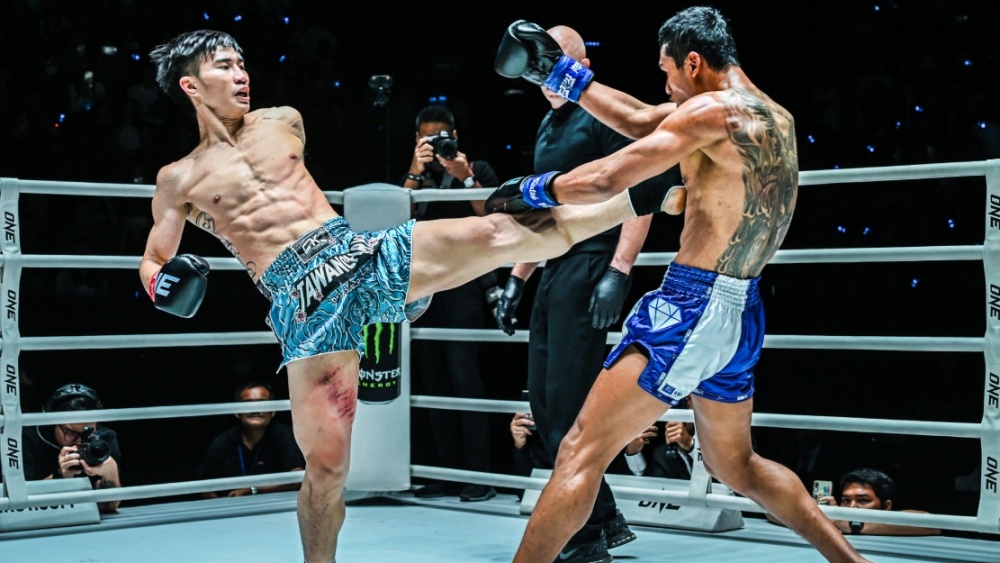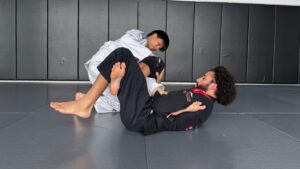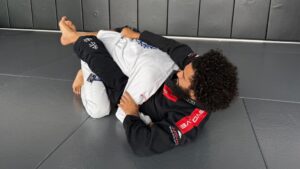In boxing, there are orthodox boxers and southpaws. A boxer may choose a southpaw stance for many reasons. The most obvious one is that they are naturally left-handed. This would place their dominant hand on their rear side, loading it up for even more power.
Another reason is eye dominance. Usually, a person’s dominant eye corresponds to their dominant hand (A right-handed person would naturally be right-eye dominant). However, there are cases where some people are born with cross dominance. This happens when your dominant eye is on the opposite side of your dominant hand, making it easier to aim and place punches with your non-dominant hand. There is a surprising number of people known to be cross dominant. A study done by the American Academy Of Optometry found 43.5% of the people in a sample size of 986 to be cross dominant.
Comfort is another valid reason many boxers choose a southpaw stance. Footwork is often easier with your dominant foot forward, which usually corresponds to your dominant hand. Examples of right-handed southpaws are Manny Pacquiao and Marvin Hagler.
Boxing as a southpaw can be challenging at first with many gyms only teaching southpaws how to mirror the techniques of an orthodox boxer. While many techniques are the same, several techniques, angles, and strategies are specific to southpaws when facing orthodox boxers. Today, Evolve Daily shares a beginner’s guide on how to box as a southpaw.
Stance
https://www.youtube.com/watch?v=YMcVTHUKGp8
Let’s start with stance. Stance is essentially the way how one stands. Different sports utilize different stances. Southpaws usually favor an open stance when facing an orthodox boxer. When two orthodox boxers meet, they often create a closed stance.
An open stance situation is far less common than closed-stance engagements, and as a result, not many orthodox boxers train to achieve proficiency in it. In contrast, southpaws are more proficient in an open stance, since they mostly fight orthodox boxers. This plays a big part in what is called the southpaw advantage.
The footwork and angles to learn for an open stance are different from that of a closed stance. As a boxer, you must learn, or at least learn to adapt both to achieve mastery in the ring. Here’s how to get into a southpaw stance:
- Stand with your feet shoulder-width apart. Take a step back with your left foot, maintaining the shoulder-width distance between your feet.
- Turn your back foot so your toes point to the left, between forty-five and ninety degrees, and keep your right foot pointed forward.
Some boxers like to keep one heel on the ground, while others prefer to be on the balls of both feet. Both are fine, as long as you can keep your weight balanced fifty-fifty between your feet.
Guard
After understanding how to get in a southpaw stance, decide on the kind of guard you like to use. Always start with the basic high guard but experiment with others, such as the extended long guard or cross-arm guard.
While the long guard can help you keep your opponent at a distance while loading your rear hand, the cross-arm guard, on the other hand, can help close the distance safely while loading your lead hand.
Angle
https://www.youtube.com/watch?v=L7jwL-6vZKw
As a southpaw, you want to take the outside angle by getting your lead foot to the right of your opponent’s lead foot. From this position, your left hand splits your opponent’s guard, lining up with their chin. Manny Pacquiao often used this angle to counter an opponent’s jab with a quick left straight.
Most orthodox boxers will be vying for the outside angle, making the lead foot especially important in open stance matchups. Although the outside angle is dominant, the inside angle provides punching opportunities for your jab and lead hook.
Manny Pacquiao usually lets his opponent take the outside angle, often leaving them countered with a lead hook. This game of lead foot control is crucial when training as a southpaw.
Punches
The basic punches for a southpaw are; the jab, cross, and lead hook. Take a look at how Olympic medalist Tony Jeffries demonstrates in the video. As a southpaw, you’ll throw your jab and lead hook with your right hand, followed by the cross with your left hand.
Take note, that as you throw jabs or lead hooks, step with your right foot and rotate your hips counterclockwise for punches. For the cross, take a half step with your left foot while rotating your hips clockwise.
Training Methods
A heavy bag is an indispensable tool for any aspiring boxer. Practice taking angles and landing punches on something relatively static before sparring with a live opponent. Watch as Coach Tom Yankello, demonstrates a conditioning drill that helps develop your shoulder endurance and cardio simultaneously.
As you’re training on heavy bags, be aware of your range. Anytime you are in the pocket, you can hit your opponent but be hit as well. To avoid developing bad habits, remember to move your head after your punches and stay off your opponent’s centerline. Unless you are working on conditioning or inside fighting, start your combinations from outside the punching range.
To find your range, extend your right arm and put your glove on the bag. From there, take a small step back and maintain your boxing stance. Starting from the outside of your punching range gets your eyes used to seeing and managing distance. In addition to combinations, drill reps of single punches on the heavy bag to attain true proficiency.
Roadwork and agility training is essential for all boxers, particularly for those that fight as southpaws. High-level footwork and stamina will make it difficult for orthodox boxers to land clean shots, frustrating them, and setting them up for your counters. Start by working your way up to jogging at a comfortable pace for 30 mins, then an hour.
The basics outlined here will be enough to deal with many orthodox boxers, with enough training. Remember, repetition is the mother of all skills!
Give Boxing A Try
Thinking about giving boxing classes a shot? Attend one of our complimentary introductory classes to see what training with world-class instructors looks like.
Book your complimentary trial class with our World Champions below!
If you have any other questions regarding Evolve MMA and the programs we offer, you can get in touch with our membership executives at the following locations:
Evolve MMA (Far East Square)
26 China Street
Far East Square #01-01
Singapore 049568
Phone: (65) 6536 4525
Evolve MMA (Orchard Central)
181 Orchard Road
#06-01 Orchard Central
Singapore 238896
Phone: (65) 6536 4556
Evolve MMA (KINEX)
11 Tanjong Katong Road
#02-52 KINEX
Singapore 437157
Phone: (65) 6288 2293
Evolve MMA (Clarke Quay Central)
6 Eu Tong Sen Street
#04-18 Clarke Quay Central
Singapore 059817
Phone: (65) 6226 2150
